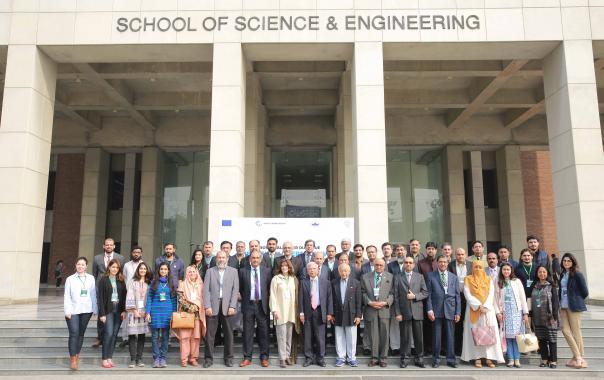
Centre for Water Informatics and Technology (WIT) at Syed Babar Ali School of Science and Engineering (SBASSE), Lahore University of Management Sciences (LUMS) in collaboration with Civil Society Coalition for Climate Change held a Provincial Water Dialogue Discussion on, 'Subnational Perspectives on National Water Policy' on December 4, 2018. This event was held in accordance with the National Water Policy (NWP) that came into effect on April 23, 2018.
The objective of this extensive dialogue discussion was to create a platform for all the involved and interested parties and to create mutual understanding as stated by the National Water Policy (NWP) from the outset, to award the provinces a significant role in setting the direction for, and the actual implementation of the policy. In its preamble, the policy states that it is a national framework within which the provinces can develop their master plans for sustainable development and management of water resources, given that irrigation, agriculture, rural and urban water supply, environment and other sub-sectors are provincial subjects.
Pro Chancellor LUMS, Syed Babar Ali was present at the event to offer his insight on the dialogue along with acknowledgement for this venture. The event included participants from all the relevant sectors, both private and public, which included Dr. Ishrat Hussain, Advisor to Prime Minister on Institutional Reforms and Austerity, Dr. Abid Bodla, Member Infrastructure Development from Punjab Planning and Development Board, Mr. Khalid Mohtadullah, Senior Water Expert, Mr. Habib Ullah Bodla from Punjab Irrigation Department and Ms. Sana Khalid from Agriculture Delivery Unit, Agriculture Dept. of Pakistan.
Patchamuthu Illangovan, Country Director for Pakistan, World Bank Group was also present at the event. Moreover, active participation was experienced from Nestle Pakistan, The Coca-Cola Company, CPEC, WAPDA, Abdus Salam Foundation and IWMI.
Every one appreciated the efforts LUMS has put in for conducting the productive discussion and hoped similiar dialogue discussions would be held more frequently so that diverse approach and strategies could be taken in future for making better water policies.








